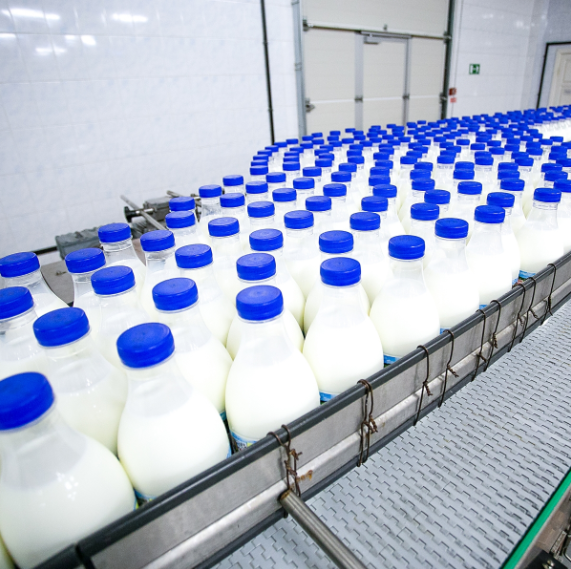As China’s taste for dairy products is increasing constantly, the Chinese Customs is regularly screening out products and blacklisting companies for imports. Overseas manufacturers that want to import to China should keep close track to the requirements to enjoy the growing demand.

The booming demand for dairy products in China is caused on the one hand by the steadily growing number of expats and international students in the country, who don’t want to forgo cheese in their nutrition in China. On the other hand, Chinese growing middle class shows also a growing taste for dairy products, supported by a large number of foreign restaurants which cook many dishes with cheese and other dairy products.
However, the participation in the growing demand in China is restricted to foreign companies that fail to sell their products within the allowed nutrition requirements. There are many cases where products are returned to the border and companies are getting blacklisted for stricter requirements.
On 16 March, the General Administration of Quality Supervision, Inspection and Quarantine (AQSIQ) published a list of food and cosmetics that was prevented from entering the Chinese market and returned the goods to their countries of origin. The affected goods included 35.48 tonnes of Bimbosan infant formula, produced by Switzerland's HOCHDORF, returned due to excessive choline.
A similar list was released on 26 February for products prevented from entering the market, including 32 tonnes of MPC produced by Grassland Dairy Products, lacking inspection and quarantine access as well as 70 kg of Giovanni Colombo Buffalo Mozzarella produced by Gennaro Auricchio S.P.A, containing excessive saccharomycetes
What’s more, on March 14, the Certification and Accreditation Administration (CNCA) announced that overseas infant formula producers allowed to export to the market should renew their certificates a year before their expiry. Those obtaining such certificates by the end of 2014 should file applications to the relevant local administrations for a 4-year extension of validity by the end of 2018.
The CNCA's notice implies that the government is shifting its focus from preventing food safety accidents to improving food companies' response to such accidents, setting higher standards for their management and handling capabilities before, during and after the accidents. In addition, the Provisions on Administration of the Registration of Overseas Production Enterprises for Imported Food published in 2012 stipulates that the CNCA should organise experts or designated agencies to investigate application materials and conduct on-site reviews if necessary. However, the CNCA has not required on-site reviews.
The CNCA's notice did not surprise most exporters, but the period of time for material preparation is still limited.
On 5 December 2017, the CNCA temporarily froze the approval for the Lactalis plant Celia-Laiterie de Craon to supply into the market after the French Ministry for Economy and Finance's worldwide recall of initially 12 and subsequently another 620 batches of the company's infant formula.
Several days later, the AQSIQ confirmed infant formula produced by the plant had to be recalled. In AQSIQ's subsequent verification, 32 batches of the company's Ofmom Natura-defense, Celia and Stolle brands of infant formula were founded to have entered the market via general trade after completing inspection and quarantine.
Since the 2008 melamine scandal, Chinese consumers have been very wary about the safety of infant formula. As a result, they will instantly stop buying infant formula involved in severe food safety accidents, whether imported or locally produced.
3 more dairy producers on the alert list
On 26 December, the AQSIQ added 3 more dairy exporters to the Import Alert List for Overseas Food and Cosmetics Producers: Compagnie Des Fromages & RichesMonts, Faye Gastronomie International and Parmalat Australia. The reason was that their products were prevented from entering the market several times in 2017.
In February, 1,359.6 kg of Pauls pasteurised whole milk and 60 kg of Harvey Fresh whipping cream produced by Parmalat Australia were destroyed for being past their shelf life. In March, 84 kg of Coeur de Lion Le Brie produced by Compagnie Des Fromages Et RichesMonts was destroyed due to excessive Escherichia coli, and in April, another 652 kg was also destroyed due to excessive E.coli. In April, 659 kg of Rameau de Beit Brie and 84.5 kg of Haute-Savoie Reblochon exported by Faye Gastronomie International were destroyed due to excessive E. coli and in May, 659 kg of Danish Brie cheese, 743.5 kg of Levin cheese and 659 kg of Haute-Savoie Reblochon from the same company were destroyed due to excessive E.coli.
According to the Implementation Rules regarding Blacklist Administration of Imported Food, companies whose products have been found to have such safety problems must submit test reports and documentation for the products in question. The test reports need to meet several requirements.
The newly-blacklisted exporters will need to submit materials to be allowed to export specific goods to the domestic market. Compagnie Des Fromages & RichesMonts is required for an E. coli test report for the export of cheese under HS code: 0406900000. Faye Gastronomie International needs the E. coli test report for the export of cheese under HS code: 0406900000. Parmalat Australia has to hand in the organoleptic quality guarantees for the export of sterilised milk HS code: 0401200000 and whipping cream HS code: 0401300000.
About the article
Tranalysis offers the detailed import and export data for dairy products in China and worldwide. The reports are using official Customs data as well as extensive research and experience to provide clients with the best insights into the trade situation and allow informed decision making regarding suppliers, traders, customers, and more.
Get your trade data by looking for your commodity in our Online Shop or contact our team directly at econtact@tranalysis.com or call +86-020-37616606